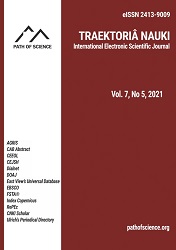Why Trusting Nigeria Centre for Disease Control Information Is Difficult: A Study of The Awareness, Knowledge and Perceptions of Nigerians Hesitant Towards COVID-19 Management by NCDC in Nigeria
Why Trusting Nigeria Centre for Disease Control Information Is Difficult: A Study of The Awareness, Knowledge and Perceptions of Nigerians Hesitant Towards COVID-19 Management by NCDC in Nigeria
Author(s): Mohammed Abdullateef, Beatrice OkonkwoSubject(s): Governance, Welfare systems, Politics and communication, Management and complex organizations, Crowd Psychology: Mass phenomena and political interactions, Health and medicine and law
Published by: Altezoro, s. r. o. & Dialog
Keywords: Covid-19 Awareness; Covid-19 Perceptions; NCDC Distrust; Covid-19 Management; Covid-19 Information;
Summary/Abstract: As the world battles the novel Coronavirus pandemic ravaging lives and destroying economies, many nations have entrusted the detection, handling and management of confirmed coronavirus cases to their leading public health institutions. For Nigeria, the Nigeria Centre for Disease Control (NCDC), charged with the said responsibility, faces a worrisome myriad of backlash from citizens' who regard their daily update of confirmed cases as misleading. In this survey, the researchers purposively study this category of sceptic individuals to understand their level of awareness of the virus and their perceptions about the government agency, to determine the factors responsible for the lack of confidence in the reportage, and how their confidence level may be boosted. The study adopted a mixed-method to recruit some 425 respondents that fit the profile of 'those who lack confidence in the NCDC daily reports'. Findings revealed that even the aware, educated, and high-income Nigerians equally constitute those with misperceptions and scepticism about the NCDC. Key reasons for the distrust include inconsistent reporting, secrecy about patients' database, and perceived corruption tendencies. Recommendations based on the findings call for increased openness and access to compelling information about activities to curtail the infection, especially transparency in treatment and budget spending.
Journal: Traektoriâ Nauki
- Issue Year: 7/2021
- Issue No: 05
- Page Range: 6001-6008
- Page Count: 8
- Language: English

